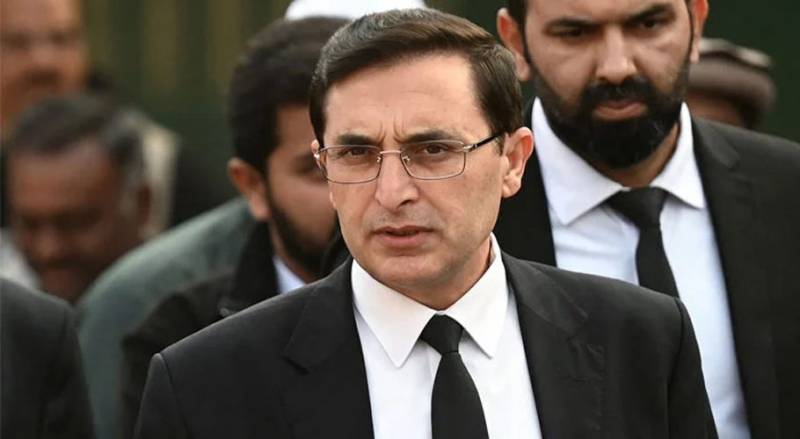Legislation
ISLAMABAD: Barrister Gohar Ali Khan, a prominent leader of Pakistan Tehreek-e-Insaf (PTI), has emphasized that any upcoming legislation must prioritize the best interests of the country and its people.
He stressed that PTI, as the main opposition party, is committed to reviewing the legislation thoroughly before making any decisions on its stance.
Speaking in an exclusive conversation, Gohar noted, “The draft of the legislation is not in front of us. We will first read it and then decide.” His comments reflect PTI’s cautious approach to the legislative process, especially concerning significant amendments that could affect the nation’s governance structure.
PTI Chairman also highlighted the importance of understanding the full scope of any proposed laws before offering support or opposition.
In his remarks, Gohar addressed the role of Jamiat Ulema-e-Islam (JUI-F) Chief Maulana Fazlur Rehman in the current political discussions, clarifying that PTI has not yet received any formal offers from the Maulana regarding the proposed legislation.
“Maulana Fazlur Rehman didn’t discuss with us about any offer,” Gohar said, adding that political engagements and office acceptance are often part of the larger political strategy.
Gohar acknowledged Maulana Fazlur Rehman’s firm stance on judicial reforms. “Maulana Fazlur Rehman has taken a principled stance and is standing by it, insisting that any legislation regarding the judiciary should not be extraordinary.”
This comment signals Maulana’s concerns over potential changes that could alter the judiciary’s independence or introduce unnecessary complications.
One of the central issues in these reforms is the proposal to increase the age limit of judges, which Maulana Fazlur Rehman has openly opposed. According to Gohar, Maulana is strongly against any such increase, believing it could undermine the judiciary’s efficiency.
Gohar further elaborated on the discussions surrounding the rotation of judges in the Islamabad High Court. “There is also talk about the rotation of Islamabad High Court judges, and this will restrict the judiciary,” he said, cautioning that such measures could interfere with the court’s ability to function autonomously.
He also expressed concern about the idea of transferring judges without their consent. “It will be inappropriate if a judge is transferred without consent,” Gohar remarked, indicating that such moves could disrupt the independence and impartiality of the judiciary, an essential pillar of Pakistan’s legal system.
In the broader context of the proposed constitutional amendments, the ruling Pakistan Muslim League-Nawaz (PML-N) is working diligently to secure the support of other political parties within the Parliament.
The government requires a parliamentary majority to pass the constitutional bill, which has not yet been made public. PML-N’s strategy appears to be centered on rallying support from opposition parties, including PTI, to ensure the smooth passage of the bill.
However, with PTI’s cautious approach and Maulana Fazlur Rehman’s principled stance on judicial matters, it remains to be seen whether the necessary consensus will be achieved.
The passage of any constitutional amendment requires careful deliberation, and Gohar’s remarks suggest that PTI will not rush into any decisions without thoroughly reviewing the contents of the proposed legislation.
As the political landscape in Pakistan evolves, the outcome of these discussions will play a critical role in shaping the future of the judiciary and the legislative process.
The government’s ability to build consensus and PTI’s willingness to cooperate will determine the fate of these proposed amendments. For now, Barrister Gohar’s statements reflect PTI’s commitment to a careful, measured approach to legislative reform.
I am a dynamic professional, specializing in Peace and Conflict Studies, Conflict Management and Resolution, and International Relations. My expertise is particularly focused on South Asian Conflicts and the intricacies of the Indian Ocean and Asia Pacific Politics. With my skills as a Content Writer, I serve as a bridge between academia and the public, translating complex global issues into accessible narratives. My passion for fostering understanding and cooperation on the national and international stage drives me to make meaningful contributions to peace and global discourse.










